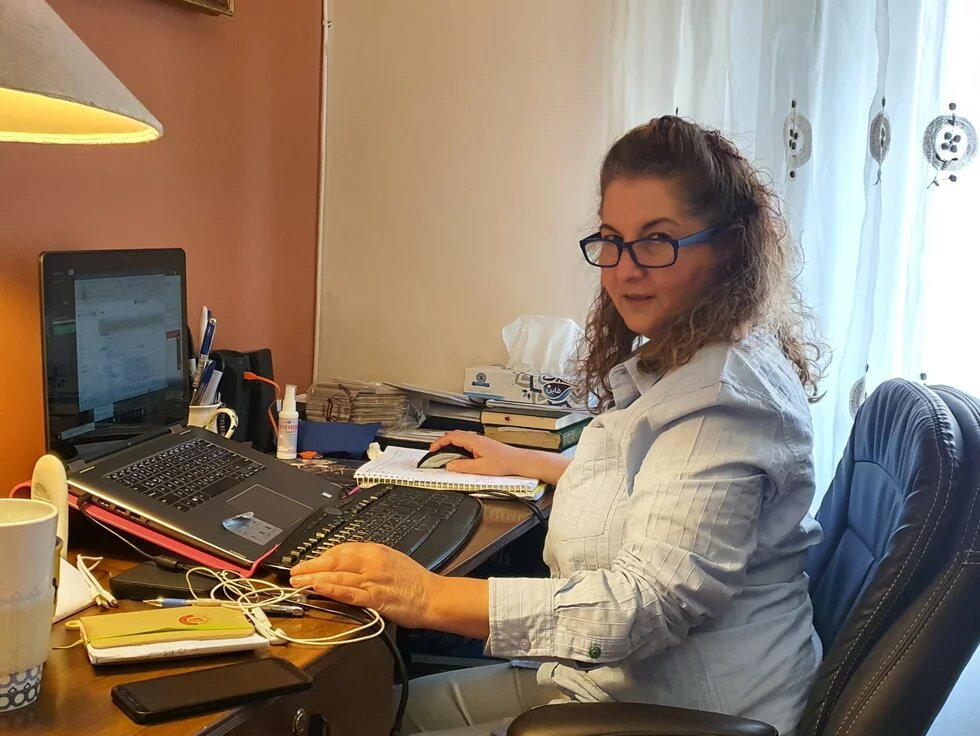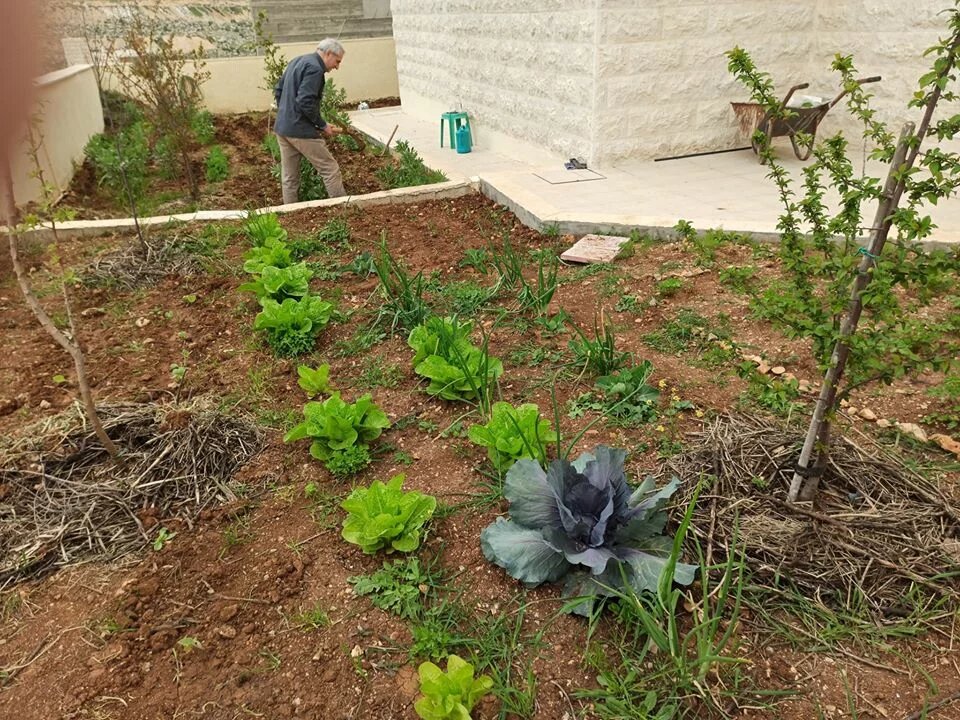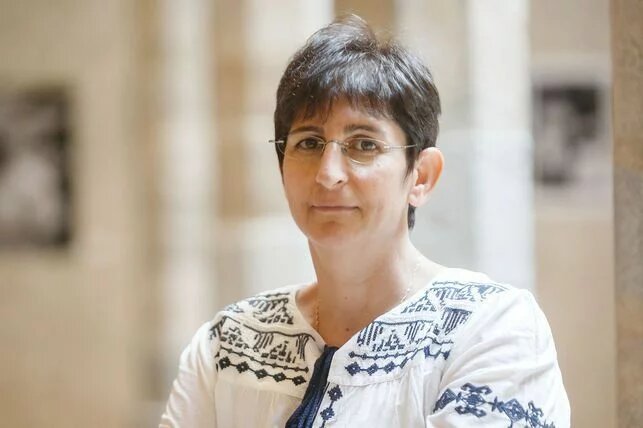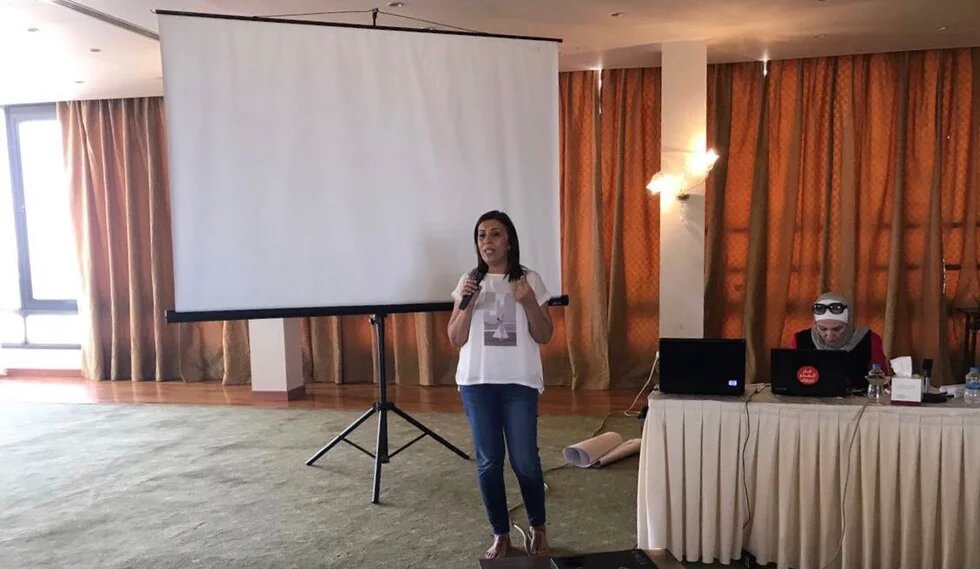
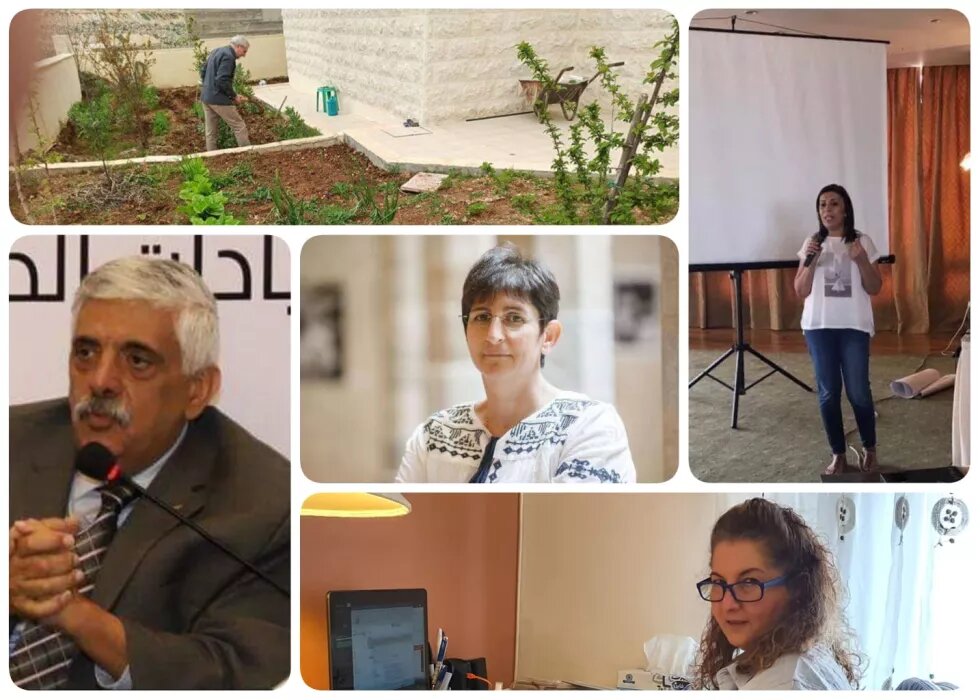
Life of a Columnist in the Lockdown
The current lockdown in Jordan has been rather severe compared to most countries. It began with a four-day continuous curfew where you were not allowed to step outside the house. Pharmacies were allowed from day one to deliver drugs to your home and doctors were given free hand to travel and answer any call. An emergency free number was created but it was soon overloaded with people often calling with silly questions. Water and bread delivery were allowed from day one.
The restriction was slightly eased by allowing persons to walk to the nearest local stores for basic goods. At a later stage, big supermarkets and others were allowed to send products ordered online to be delivered to your home. A special online software was created allowing people to apply for and receive travel permissions for different purposes. Businesspeople were given a few hours in the mornings to go to their offices and sign checks and do some business work. Banks were opened and other essential services were allowed some restricted work.
My normal work is divided between managing and writing. Along with a number of journalists working with us were given permissions to travel. As a columnist, I am not required to travel and witness issues in the field the way a TV or radio reporter is obliged to do. The very nature of a columnist is to observe and synthesize what you see in a well-understood and simple way. I normally like to do most of my writing in the morning, but with the round the clock restriction I learned to write at different times of the day.
My other responsibilities of managing took on a different track. Zoom meetings became a big deal during this emergency. The software is convenient both in the simplicity of usage but also with the opportunities it gives to share documents and to refer to power points presentations or other documents as tools to help guide discussions.
While I quickly adopted to Zoom meetings, one habit that has occurred bothered me. Many people attend zoom meetings but keep the video section closed so you find yourself talking to a screen rather than to a person. Some argued that they are not properly dressed but that is no excuse if you had a meeting planned for days earlier. If you were meeting face to face you wouldn’t wear a mask to the meeting so why cover yourself and keep the video turned off with zoom meetings.
The coronavirus has made people think a lot about many things and it will no doubt cause some major changes to our lifestyle and habits. Working away from the office is not as inefficient as previously thought. It turns out that we can accomplish a lot in a much shorter time if we have to. Let us hope this and other new habits will make things better when things return to normal.
The Coronavirus (COVID-19) Pandemic: a Catalyst for Change
COVID-19, a major catalyst for change for the world around us. My Name is Diala Al-Alami and I am the executive Director of the Royal Marine Conservation Society of Jordan (JREDS). Our organization has had the pleasure of partnering with Heinrich-Böll-Stiftung (hbs) for over 20 years in Jordan.
The Jordanian government’s response to the COVID-19 virus outbreak was quick as it started a systematic lockdown on March 14th while prioritizing schooling for children and keeping all safe. The government decided to shift to online and TV education for children at home and in my opinion keep their parents busy. JREDS immediately adopted a “WORK FROM HOME” policy to accommodate our staff, all of whom have children to care for. On March 18th, Jordan went into a full lockdown and the country shifted into the realm of the unknown like the rest of world, with over 5,000 Jordanians arriving from different locations placed in quarantine in hotels. The Jordanian airports closed and even movement between cities became restricted. A quick and efficient response.
Our work life changed to accommodate both personal and work obligations. Fluctuating internet due to the activation of a full online schooling system for all the children and universities as well as family obligations, amended our work schedule to a more deliverable-based approach. Staff started to deliver work at odd hours like 2 and 3 am, and we succeeded in joining efforts to achieve deadlines or alter the deliverables. Currently, we launched an initiative “Be’aty min Bayti” (My Environment from my Home) which is a series of environmental challenges for students to utilize their time at home from facebook. The varied staff conditions provided a joint team approach of support, although exhausting at times for all, we are learning new ways and approaches.
Although COVID-19 is a vicious virus, it is a catalyst that will change our ways of operation, teaching us new ways of online interaction and has unified the world in promoting an understanding of each other.
Corona pandemic: an opportunity to foster self-reliance
The compulsory homestay of our family due to the corona pandemic was an occasion to transform this residence into an opportunity to enhance family solidarity and develop what we have already accomplished in recent years: A productive family structure, intellectually, culturally, nutritionally and agriculturally. Fortunately, since the start of our compulsory homestay in mid-March, the diversified winter crops we have grown December, 2019 have filled our garden. They included peas, beans, spinach, onions, radishes, lettuce, parsley, cabbage, cauliflower, thyme, and sage.
Thus, we have become a self-sufficient family in a broad category of vegetables, in addition to the remaining citrus fruits. How great was our joy when we started distributing some surplus crops from our garden to our neighbors in the same neighborhood.
Besides, during the household quarantine period, we maintained our family food traditions started since nearly twenty years. We did not buy eggs or processed cow milk and its products from the market, but rather continued to buy organic eggs and goat milk (weekly) from our organic farmer friend Abu Muhammad in Al-Bireh City. From milk, we also produced yogurt, labaneh, and local white cheese in our home.
Moreover, at the household level, we have developed new food production practices, such as producing whole wheat bread instead of buying it from the market as well as making organic jams, sweets, and pastries. In short, during the period of compulsory homestay, we achieved a high level of food and agricultural self-sufficiency.
We also planted some summer crops like sweet peppers, hot peppers, tomatoes, cucumbers, zucchinis, pumpkins, okra, eggplants, mint and watercress in an integrated manner with the remaining winter crops. In doing so, we have created an ecological garden, in terms of winter and summer plants overlapping and accompanying each other. Of course, we always make sure to use agro-ecological practices such as making mulch and compost.
The period of "home arrest" also constituted a good occasion for our children to develop their musical skills. One of our sons, Mahdi, is now devoting a daily period to practice playing the oud. As for Nawras, he used his time to compose new piano musical pieces to serve him in his Ph.D. thesis on studying the effect of different musical styles on memory and concentration.
Remarkably, the pressure of working from home increased, where I had to intensify my follow-up and review of scientific environmental-health literature and references to update data and information on the corona pandemic and publish articles and reports on social media and Afaq Environmental Magazine. I also conducted communications and discussions with our correspondents to prepare new and innovative investigations and reports on the pandemic with its ecological, health, social, economic, political, psychological and educational dimensions.
I had to write additional reports and analytical articles to fill the professional-scientific gap that our writers and reporters could not fill due to the corona situation. Thus, we maintained the regular publication of Afaq magazine and even with more diversity and richness of content than before. We created new spaces in Afaq such as the “Resistance Gardening in the Corona Era” and prepared new informative / awareness videos. Many institutions, networks, media, and local sites have benefited from our magazine and republished some of its articles.
Compulsory residence at home will help us in the post-pandemic stage to accumulate and build on our experience to develop it towards enhancing our healthy and environment- friendly practices and behaviors, rationalizing our consumption and increasing our household food and agricultural production, as well as our intellectual, artistic and cultural production.
Working under Restrictions in the time of the Corona Virus:
As a human rights lawyer working for the cause of Palestinian political prisoners for the last 25 years, it was a very special experience to be locked down at home for the last few weeks. Thinking of the hundreds of prisoners I represented in the last decades who were imprisoned for long periods. Some were placed in isolation, besides the punishment of imprisonment, where you would be locked in your cell for 23 hours a day, a cell that has nothing but your bed and a small shower and a small TV. You do not meet anyone even in the one hour a day in in the yard, but you are likely to meet one policeman. Some of these prisoners were held in isolation for 10 years! Imagine how we are going crazy from being locked at home when we have free access to internet, TV, food, and the space, most importantly are not locked in a 4 meter square cell. As we have our smart phones, Palestinian prisoners are not even allowed to use the old public phones. Can you imagine being under quarantine and not being able to call your mom or wife or siblings or children?
I live in Ramallah but my family lives in Fassouta, a small village in the upper galilee. I was extremely lucky to be able to join my parents in my small village. I spend most of the quarantine time between following the conditions of Palestinian prisoners in these terrifying times and walking in the fields in the beautiful spring of northern Palestine.
Addameer team continues to work from home. Lawyers continue to follow new cases of prisoners under interrogation and administrative detention via video call technics since all visits to prison have been suspended. We succeeded to release a few prisoners in these days and are trying to maintain support to prisoners via the electronic campaign we launched on prisoners’ day on April 17th. To learn more about our campaign, check the twitter handle #FreeourPrisoners (pic.twitter.com/t6GITJPKMv).
Jordanian Women’s Union (JWU)
Through these difficult times, women are facing new responsibilities related to the safety and the wellbeing of their loved ones and society at large. Staying home with limited movement decreases accessibility to the protection services available to help women facing violence. As domestic violence increases in times of stress, women suffer from the inability to report this violence or to seek specialized help or even help from friends and family. We tried in the Jordanian Women’s Union (JWU) to spread the message to these women, using all possible means, to let them know that we can hear their voices. Our social workers, psychologists and lawyers are available to listen and help. Our shelter is open for new comers and our staff in the shelter is away from their own families to be available for women in need of support and protection. In no way will we let them down by not being there for them. We took on this responsibility from the beginning and will stay there for them. Solidarity is what we need to get through this pandemic together and from different places.
